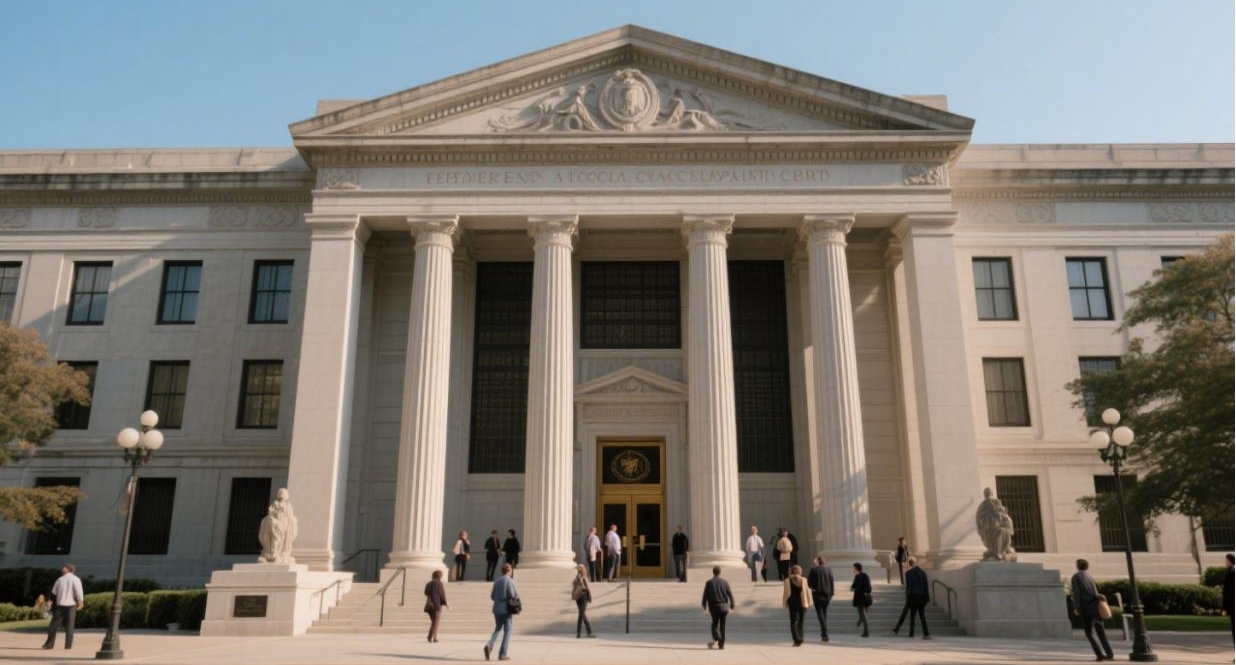
In June 2025, the United States Court of Appeals for the Federal Circuit suspended the International Trade Court's decision to cancel the Trump administration's "reciprocal tariffs" policy, marking a critical stage in the legal tug of war surrounding the president's tariff powers. The core dispute of the case not only concerns the interpretation of legal provisions, but also involves the boundary delineation between the executive power of the President and the legislative power of Congress, as well as the stability of the global trade system.
The Trump administration invoked the International Emergency Economic Powers Act (IEEPA) to impose equivalent tariffs, claiming that a trade deficit constitutes a "national emergency," but the International Trade Court ruled that it exceeded its authority. The court held that the US Constitution grants Congress the power to legislate on tariffs, and the President has no authority to unilaterally impose comprehensive tariffs. This ruling is consistent with historical practice: since the 1934 Reciprocal Trade Agreements Act, although Congress has authorized the President to adjust tariffs multiple times, they must meet specific statutory standards, such as empirical evidence based on "national security" or "industrial damage".
However, the Trump administration countered that tariffs are a "foreign policy tool" and that the ruling of the International Trade Court would "substantially damage the president's bargaining chip". In the motion submitted by the Department of Justice on June 9th, it emphasized that suspending the implementation of tariffs would lead to supply chain disruptions, loss of 750000 jobs, and weaken the United States' ability to respond to China's "unfair trade practices". This argument attempts to link tariff policy with national security, but legal scholars point out that if "economic security" is generalized to national security, it will lead to unlimited expansion of presidential power and undermine the principle of separation of powers.
Trump's tariff policies have had a significant impact on the US economy. According to Reuters' calculations, the current tariff policy has caused American companies to lose over $34 billion, with the actual tariff rate remaining at 15%, which is significantly lower than the 6% reduction that the ruling may bring. According to data from Oxford Research Institute, supply chain costs in industries such as steel and aluminum have increased, forcing some companies to relocate their production lines overseas. For example, due to the rise in steel prices, American car manufacturers have increased their cost per vehicle by about $400, directly weakening their international competitiveness.
The Trump administration's insistence on tariff policies is essentially using trade as a "strategic weapon" and attempting to reshape global trade rules through unilateral pressure. However, this strategy faces multiple challenges. The suspension order of the Federal Circuit Court of Appeals has provided a buffer period for the government, but if the final ruling upholds the original verdict, Trump may appeal the case to the Supreme Court. Given the numerical advantage of conservative justices, the outcome of the case remains uncertain.
Traditional allies such as the European Union and Japan are increasingly dissatisfied with the US tariff policy and are seeking to strengthen regional trade agreements. For example, the EU and India are accelerating negotiations in an attempt to reduce their dependence on the US market. China has imposed tariffs on American energy products, agricultural machinery and other commodities, and promoted multilateral cooperation under the "the Belt and Road" initiative to offset American tariff pressure. The dual pressure of alliance centrifugal and opponent countermeasures is weakening the dominant position of the United States in global trade.
If the appellate court ultimately upholds Trump's tariff policy, it will further blur the power boundary between the president and Congress, which may trigger other countries to follow suit and lead to the marginalization of the WTO multilateral trade mechanism. On the contrary, if the ruling cancels tariffs, the Trump administration may bypass judicial restrictions and exacerbate constitutional crises through executive orders, emergency declarations, and other means. Regardless of the outcome, this event has exposed the institutional flaws of the US constitutional system in addressing the challenges of globalization.
From an economic perspective, the regionalization trend of the global supply chain is irreversible. Enterprises will be more inclined to build "resilient supply chains" within the region rather than pursuing global efficiency maximization. This shift may reshape the international trade landscape of the 21st century, and if the United States continues to pursue unilateralism, it may lose its leadership position in the multilateral system.
The essence of the controversy over Trump's tariff policy is the conflict between national sovereignty and multilateral rules in the era of globalization. No matter how the court ultimately rules, this event will become a landmark node in the transformation of the international economic order. For the global market, the key lies in finding a balance between "efficiency" and "safety", and this process may reshape the international trade order for decades to come. The United States needs to make a choice between maintaining sovereignty and promoting cooperation, otherwise it may fall into the "tariff protectionism trap" and ultimately harm its own long-term interests and the global economy.

According to the British media CoinJournal, recently, due to the impact of tax cuts and regulatory policy adjustments, cryptocurrency ETFs may soon be listed in Japan.
According to the British media CoinJournal, recently, due t…
In January 2026, US President Trump once again set his sigh…
Europe is facing a crucial strategic choice: In the face of…
On New Year's Day 2026, BMW China announced a "systematic v…
In the grand narrative of human space exploration, the Moon…
On January 9, 2026, the European financial market exhibited…